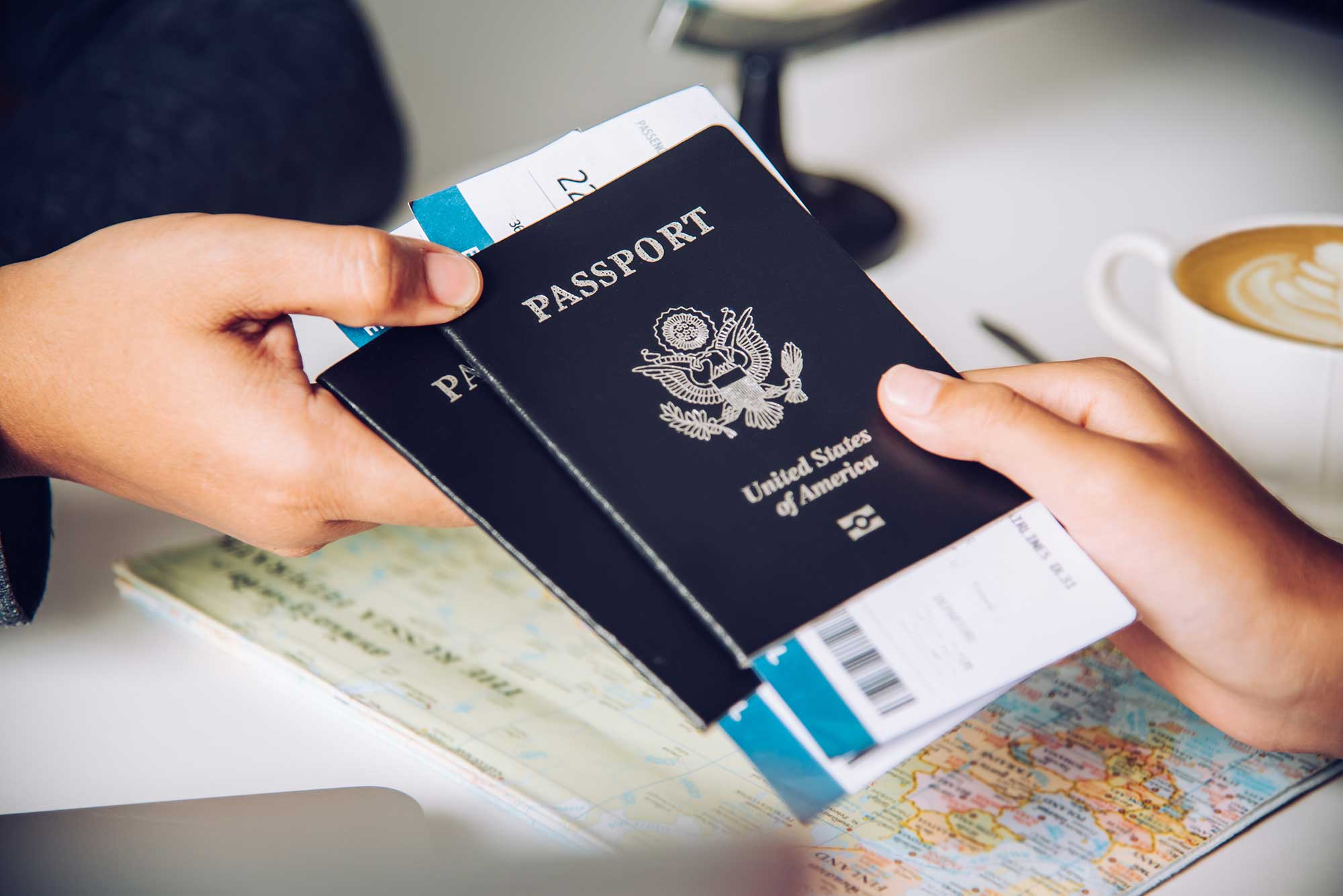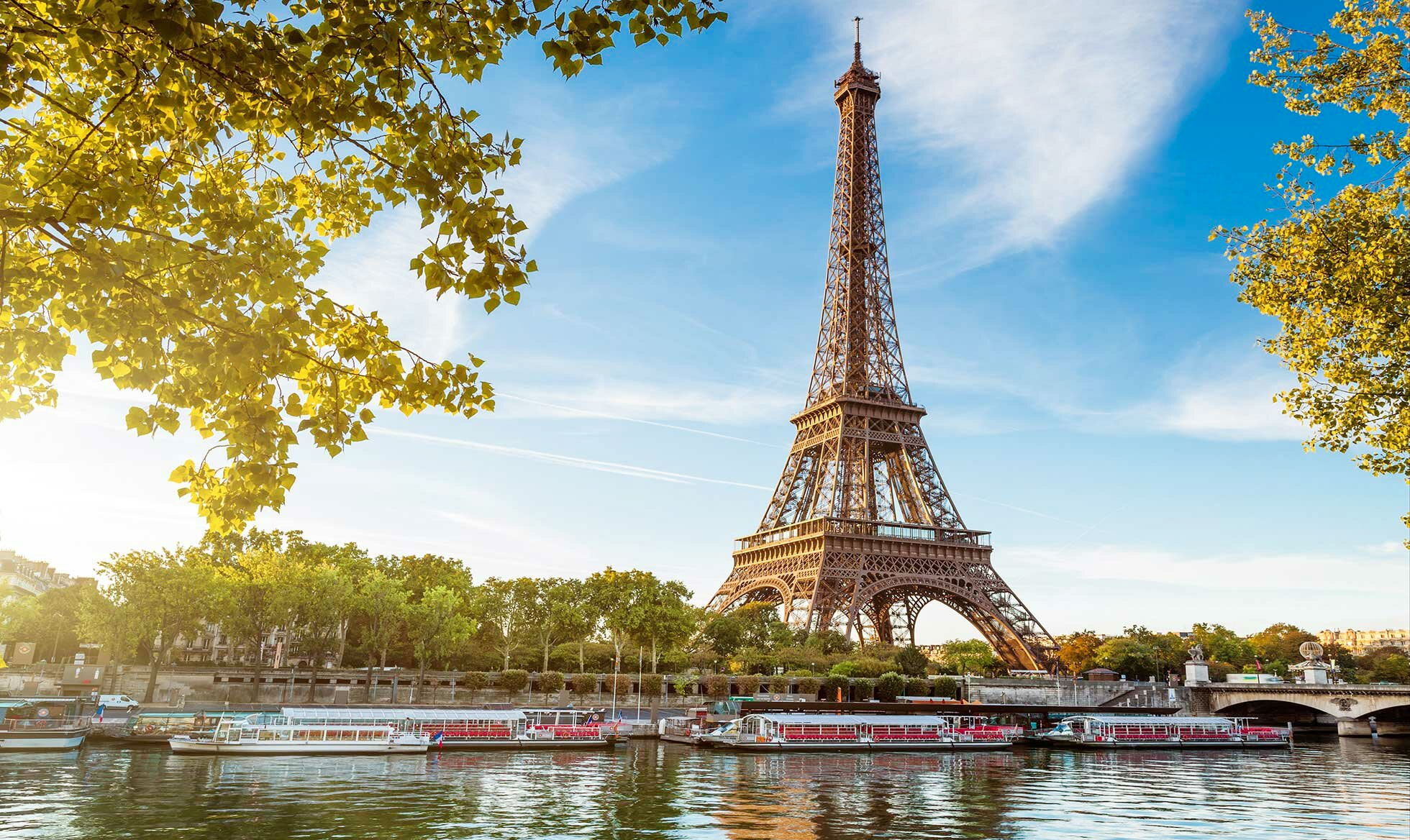A Step-By-Step Guide to Applying for a French Tourist Visa
Back in 2019, before lockdowns and grounded planes, France was the world’s most visited country. Some 90.0 million international tourists visited during the year. Spain, which came in second place, welcomed 83.7 million international visitors.
Now that we are coming out of the other side of the pandemic, albeit in a rather stilted fashion, many travelers are itching to make up for lost time and head over to France to enjoy the heady atmosphere and sites of Paris, the quiet beauty of the Dordogne and all the other wonders that France has to offer.
With that in mind, follow our step-by-step guide below to ensure your paperwork is in order and that you have everything you need to apply for a French tourist visa.

Who needs a French tourist visa?
The French government has a user-friendly, English-language website that includes a three-minute test to determine whether you need a visa to visit. Broadly speaking, if you’re from a European Union or European Economic Area member state, or from Switzerland, Monaco, or Andorra, you won’t need a visa to enter France.
If you are an American planning to travel to France, whether for a vacation, to study, to work or for any other reason, you will need to establish which visa you require in order to visit. The nature of your stay and its duration will both impact the kind of visa that you need. Below, we will walk you through the different options, providing everything you need to know to obtain the correct visa for visiting France.
Vacations lasting 90 days or fewer
If you are visiting France for fewer than 90 days, as an American you will not need to obtain a visa. However, from November 2023, you will need to complete the online ETIAS visa waiver application process in order to enter France. The ETIAS process must be completed at least 72 hours prior to travel. Once obtained, it is valid for a period of up to 90 consecutive days, within a 180-day period.

Stays of more than 90 days
Should you wish to stay in France for more than 90 days then you will need a long-stay visa. This allows you to remain in France for anything from three months to one year. If you want to stay for more than a year, it’s time to investigate obtaining a residence permit.
The kind of application form you complete will depend on the nature of your visit. There are application forms for long-stay visas for vacations, for authorization to work for a salaried employment, for highly qualified employees, artist and cultural professions and new innovative enterprises that deliver international talents and economic attractiveness, as well as for those wishing to work as au pairs.
Where you are applying from will determine which authority processes your visa application. Applicants from the United States, for example, need to submit their paperwork to the French Consulate in Washington DC. Applications are handled through 10 VFS Global centers, nine of which are in the US and one of which is in Jamaica.
Which documents do you need to apply for a visa?
To apply for a visa, you will need a range of documents in addition to your completed French visa application form and proof of payment of the relevant application fee.
You will need your passport and proof that you have medical insurance that covers you while in France. You will also need proof of your financial means, to demonstrate how you can afford to support yourself while in France. This can be proven through bank statements, proof of rental property income, retirement benefit plans, and various other documents.
Visitors to France will also need to show proof of their accommodation and a complete itinerary of their trip, including their return travel home, as part of the visa application process. That process will also require you to show a certificate of any criminal record you may have, copies of any old visas, and two recent passport photographs.
Why You Should Seek Certified Professionals in French Translation
As you will be submitting your documents to the French authorities, it’s time to track down reliable French translation services. Seek out a service that offers certified French translators whose experience includes working on visa application paperwork. Be sure to use a professional French translator to obtain the best results, and never, ever translate your own documents. Always opt for certified French translation services that confirm the authenticity of the translations in relation to the original documents.
What is the average cost of translation services?
French translation services cost different amounts as you shop between translation agencies. Be prepared to pay $0.10 per word, or anything from $15 to $65 per hour if you choose to use a French translation service available from a freelancer on Upwork.
When it comes to keeping your costs low, be sure not to cut corners. There is a time and a place for machine translation, but the visa application process is not it.
Why might a French visa application be declined?
There are various reasons why the authorities might decline a French visa application. Poorly translated paperwork or a lack of necessary documents can both result in visas being declined, as can a damaged or invalid passport. Criminal convictions can also put a swift stop to the visa application process.
In 2021, France ranked third in the list of Schengen countries with the highest rate of visa application rejections. It declined 21.1% of the 652,331 applications it received, compared to an average rejection rate of 13.4% across all Schengen states. As such, if you’re applying for a French visa, it’s essential to do all you can to ensure that your paperwork is in order. That means ensuring you provide all the right documents, using a trusted, reliable provider of French translation services, and making sure that you complete your application form correctly and pay your application fee on time.




